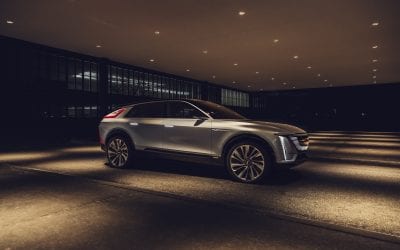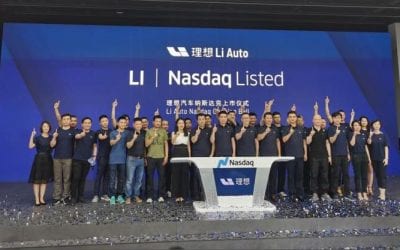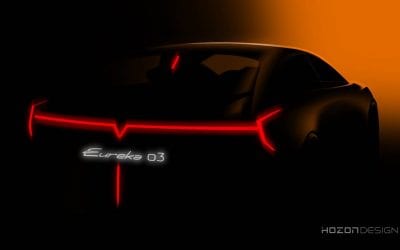
Dyson Electric Vehicles
|
wattEV2buy explores the Dyson electric car strategy and list the Dyson EV models, news, and sales as it vies for a position in the fast-growing EV market. We are used to tech companies invading the space of automakers brought on by the EV rush, but you don’t often hear of home appliance companies with EV ambitions. It might, however, be that appliance companies stand a better chance to mass produce electric cars with their understanding of manufacturing processes. Dyson, the British home appliance company last year announced that it is betting £2 billion on the development of an electric vehicle propelled by solid-state battery technology the company has been pursuing since 2014. The entrepreneur Sir James Dyson ramped up his company’s solid-state program in 2015 by acquiring Michigan based Sakti3 for $90 million. 
|
Dyson Electric Car Strategy in the news
2020 Week 21 Dyson reveals canned EV prototype
Sir James Dyson revealed a prototype of its failed EV project. The project was canceled after the company spent around $500 million developing its EV ambitions. In late 2019 the home appliance company gave up on its $2 billion EV project, sighting commercial viability as the reason, without going into details. The revealed prototype is a seven-seat SUV, with the codename N526. The N526 EV SUV has a range of 600 miles (960km), the spectacular range is achieved through the planned use of solid-state batteries, which Dyson persued through the $90 million acquisition of Michigan based Sakit3 battery startup. Other specifications of the N526 revealed by Dyson gave the dimensions as a length of 5000mm, a width of 2000mm, and a height of 1700mm. The weight of the N526 is 2600kg (5,200lbs). It is strange that the vehicle was priced at £150,000, and therefore feasible, while it was expected that Dyson was persuing a low-cost electric vehicle strategy.

2018 Week 43 Dyson decides on Singapore for EV factory
After months of speculation on where Dyson will establish its EV plant
for its £2.5bn bet on developing an electric car, the manufacturer of
electric household appliances announced in an internal memo that it
chose Singapore. Dyson engaged with authorities in the UK, China,
Malaysia, and Singapore in its decision-making process but the sovereign
city-state in South East Asia was chosen due to its proximity to
“high-growth markets.” Dyson looked at factors such as supply chains,
access to markets and the availability of skilled labor. Dyson CEO, Jim
Rowan, told staff that the company was making excellent progress on
developing the car. “Clearly we now need to move quickly towards
manufacturing and assembly,” he said in the memo. Dyson’s EV plant will
be completed in 2020, allowing for the launch of Dyson’s first electric
vehicle in 2021.
2018 Week 35 Dyson EV development takes shape
The British appliance manufacturer Dyson’s
EV plans notched up another gear as the company earmarked $150 million
for a test facility at an old World War 2 airfield in Chippenham,
Wiltshire, England. Dyson plans to transform the 750-acre RAF
Hullavington Airfield into a 10-mile long test track for its electric
vehicle development program. The test track will allow Dyson to test its
EVs in al manner of conditions including handling and stability,
off-road driving, a skid pan and a high-speed runway for speeds above
100 miles per hour (161 kph). Dyson will also construct offices for its
R&D team which will eventually house up to 2,000 staff.

2018 Week 7 Dyson EV Plans
The Financial Times this week took a closer look at Dyson’s EV program which targets three EVs from 2020 onwards and concluded that the first EV might be equipped with a lithium-ion battery rather than a solid-state battery as initially planned. Solid-state batteries which is much safer and more efficient is only expected to become mainstream in 2025 judging from pronouncements made by companies such as Toyota and Mercedes although EV start-up Fisker recently brought its solid-state battery roll-out forward to 2020.
Some industry insiders doubts if Dyson’s EV gamble will pay off with Aston Martin CEO Andy Palmer tweeting a spoof of a Dyson EV in 2017 (See image below). Dyson is yet to decide on a location for the production of its EVs which supports the detractors of Dyson’s plans as tooling for an assembly plant takes minimum 18 months no matter if you are a 100-year-old automaker or a start-up. The company is looking at locations in the UK, China, Malaysia and Singapore with the far east being favored since it is expected that China would be the largest market for the Dyson EV. Supporting Dyson’s plan is its ability to develop many components in-house making it less reliant on external suppliers. The Dyson EV is rumored to be made from plastic, which is closer to Dyson’s core and allows for the inventive design promised by Sir James Dyson in September 2017 when he announced that EV would look “quite different” to any currently on the market.
Other than Tesla Dyson does not want to over promise and under deliver and keeps its progress close to its chest. Also different than Tesla who had access to a lot of government funds the privately owned Dyson so far has only received £16 million from the UK Government. Developing electric cars is an expensive venture, this week in an interview with CNBC Renault-Nissan-Mitsubishi alliance chairman, Carlos Ghosn said that they are probably the only carmaker making money off selling EVs. To date, it seems Dyson is not considering an IPO but going it alone by supporting the £2 billion project from own funds.

Top 5 EV News Week 32 2020
Top 5 EV News Week 32 2020 | Cadillac Lyriq unveiled. Yet another Chinese EV startup IPO. Three new EV models launched this week.
Top 5 EV News Week 31 2020
Top 5 EV News Week 31 2020 | Successful IPO for CHJ Auto, Kandi finally enters the USA, Mitsubishi pays the cost for failing EV strategy.
Top 5 EV News Week 30 2020
Top 5 EV News Week 30 2020 | Chengdu Auto Show, Hozon Neta IPO, VW invest in China, eVito Tourer for sale







